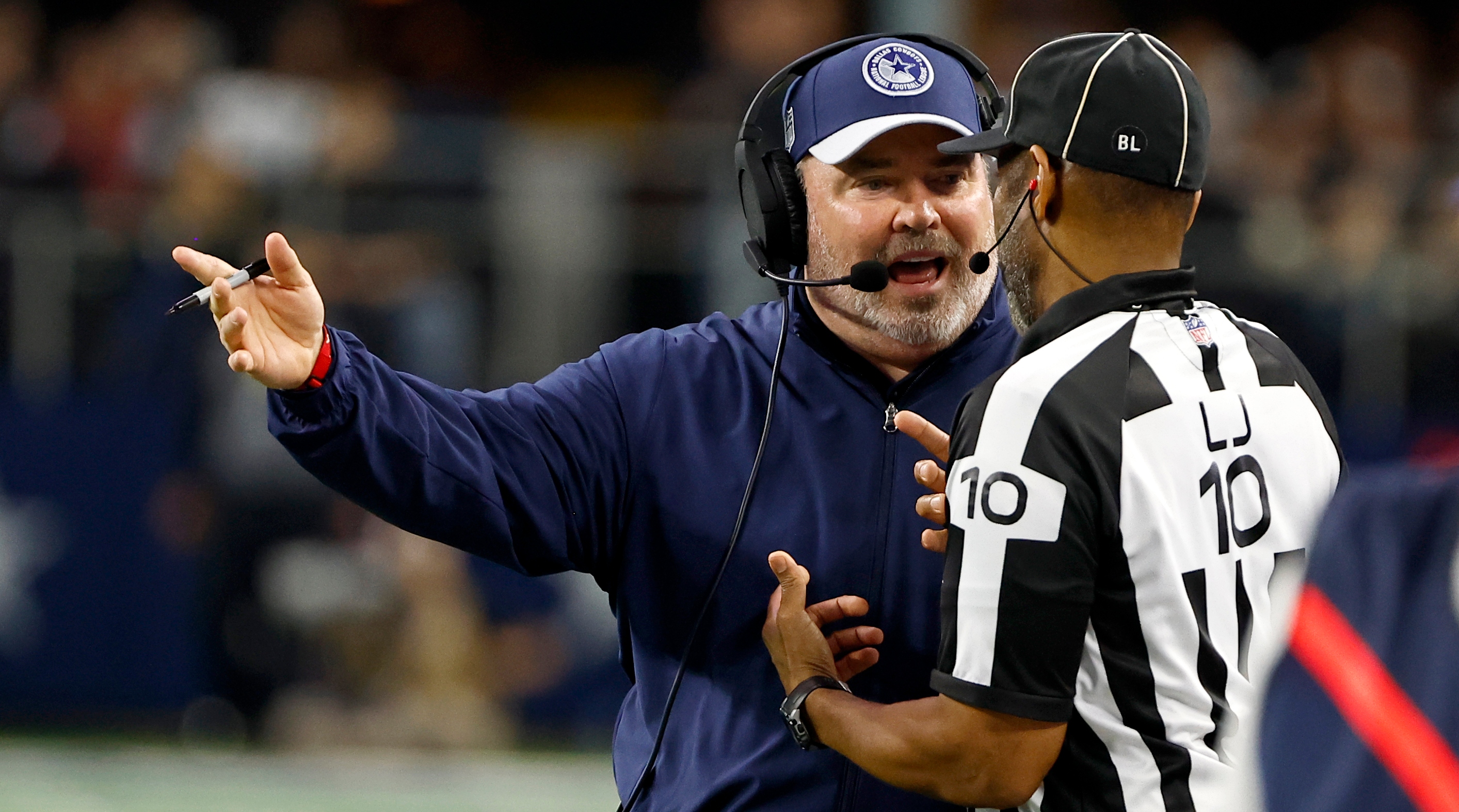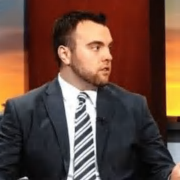Enough Is Enough: Cowboys-Seahawks Thriller Ruined by Poor Officiating
The NFL doesn’t have rigged games. The fix isn’t in.
But games like what took place on Thursday night are why the conspiracy theories are never-ending.
Unlike some contests, the tilt between the Seahawks and Cowboys at AT&T Stadium wasn’t one-sided in terms of flags. Dallas won 41–35 in a wildly entertaining back-and-forth affair without a single punt, and yet the discourse on social media was overwhelmingly about the frustration over an unending parade of yellow laundry littering the field.
All told, there were 19 accepted penalties between the teams for an unspeakable 257 yards. There were also three flags mercifully picked up.

How bad was the viewing experience despite the scoring bonanza? The Cowboys and Seahawks combined for 16 drives which weren’t three-and-outs. A whopping 11 of them had at least one accepted penalty, including multiple jaunts with massive pass interference gains.
If this was a one-off problem, it would be excusable. It’s been anything but.
Throughout the 2023 season, prime-time games have time and again seen officials overshadow competitive games.
In the season opener, the conversation both during and after the game was about Chiefs right tackle Jawaan Taylor, both for his alignment and get-off on the snap. Four nights later, the Jets beat the Bills on a game-winning punt return in overtime, which should have been called back on an obvious tripping penalty, courtesy of linebacker Chazz Surratt.
Surratt was later fined for the play.
In Week 4, the scene was again at MetLife Stadium as Kansas City dodged a potentially game-changing, fourth-quarter turnover when New York corner Sauce Gardner was controversially called for pass interference against Marquez Valdes-Scantling.
Two weeks later, the Bills won a hideous 12–7 affair over the Giants, largely because of an egregious no-call on slot corner Taron Johnson for a clear holding in the end zone. If a penalty had been properly called, New York would have had the ball inside the 1-yard line with one untimed down.
In Week 7, the Eagles beat the Dolphins on Sunday night with visiting Miami being called for 10 fouls, while the whistle wasn’t blown on Philadelphia once.

The examples are constant, and that’s only highlighting prime-time games.
And while the games are tougher to enjoy, there’s also the darker, aforementioned potential element looming over all this.
With the United States rapidly legalizing gambling across the country (37 of 50 states now permit sports betting), more money is riding on these outcomes than ever before. There’s also more scrutiny, both level-headed and otherwise, for the officiating and whether each game is above board.
While there’s zero credible idea to game-fixing throughout the NFL’s history, the league has to be very sensitive to the notion. It’s the worst problem a sports league can have, with the public having distrust in the product. This is why players such as Jaguars receiver Calvin Ridley and Eagles corner Isaiah Rodgers Sr.—among others— have been given lengthy suspensions for gambling on NFL games.
On Thursday night, there was no overall beneficiary from the avalanche of penalties. But as outlined above, that’s not always the case. It’s a problem, and here are four suggested steps for the NFL to remedy it:
- Enough with the catch/no-catch nonsense. If a player has possession of the football and has both feet on the ground, it’s a fumble if the ball is then lost in-bounds.
- No defensive pass interference may be called for a ball that is underthrown, causing the receiver to stop meaningful progress. It’s time to stop offenses from benefiting from bad throws.
- Eliminate the “full body weight” portion of roughing the passer penalties.
- Put microchips inside both ends of the football. Let science spot the ball.
Think about how much those four changes would make the game better. Fewer flags. Fewer disputable calls. Those alterations make the game easier to officiate while taking away the cheapest yards in the sport.
At some juncture, the NFL needs to get a handle on what is a growing problem. Since the dawn of sanctioned athletics, fans have bemoaned officials. It’s always going to exist.
But the league is leaving itself vulnerable by refusing to make officials full-time employees, a move which would enable them to be trained on a more consistent basis. Instead, the NFL has opted for part-time workers to determine billions of dollars from wagers.
Bottom line? The NFL should be making sure it’s doing everything to put forth the best product with the best officiating possible.
This season, especially when the lights have been brightest and the audiences have been the largest, the league has failed miserably.
